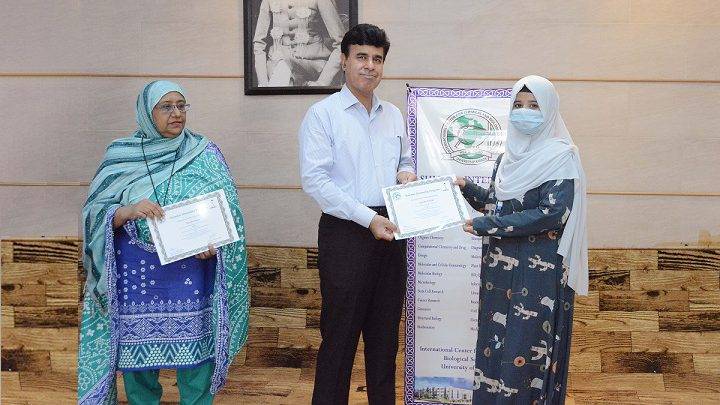The International Center for Chemical and Biological Sciences (ICCBS) at the University of Karachi (UoK) marked the conclusion of Pakistan’s largest academic internship initiative with a grand ceremony at the Golden Jubilee Hall, celebrating the achievements of 125 students selected from 27 universities and colleges across the country.
This year’s 18th Summer Internship Program-2025 attracted nearly 1,400 applications, out of which the most outstanding candidates were shortlisted through a rigorous selection process. For six to eight weeks, the selected students underwent specialized training in fields such as Biological and Chemical Sciences, Diagnostic Laboratories, Industrial Analytical Center (IAC), and the Center for Bioequivalence Studies and Clinical Research (CBSCR).
Prof Dr Muhammad Raza Shah, Director of ICCBS, personally awarded the certificates and praised the interns for their dedication and enthusiasm. In his address, he underscored the critical need for practical training to bridge the gap between academia and real-world scientific research.
He emphasized Pakistan’s untapped potential and called on students to take pride in their country, reminding them that their success stems from merit and resilience. “Our youth are the backbone of our nation,” he stated, “and programs like these are designed to empower them with the tools to lead scientific innovation.”
Prof Dr Asmat Salim, the internship coordinator, also reflected on the program’s journey since its inception in 2008. She thanked the faculty and staff for their tireless support and expressed confidence that the experience had a lasting impact on the students’ professional paths.
Related: Knowledge in Action: ICCBS Researchers Visit Dalda Foods
While the event celebrated academic achievement and skill-building, it also spotlighted the persistent demand for structured training programs in Pakistan’s higher education system. As ICCBS continues to lead by example, the broader challenge remains: scaling such initiatives across the country to harness the full potential of its vast student population.



